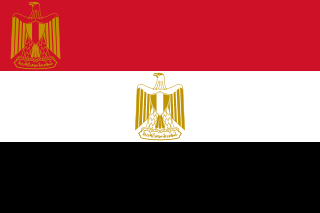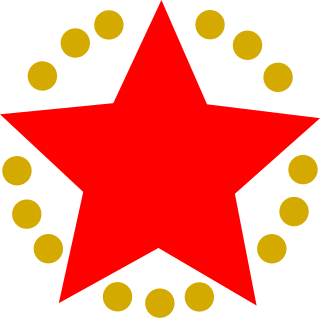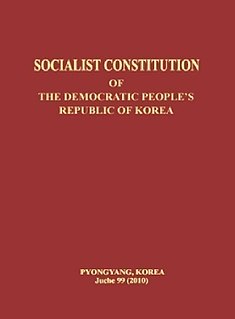1st Supreme People's Assembly may refer to:
- 1st Supreme People's Assembly of Laos, 1975–89
- 1st Supreme People's Assembly of North Korea, 1948–1957
1st Supreme People's Assembly may refer to:

The Supreme Soviet of the Union of Soviet Socialist Republics was the most authoritative legislative body of the Union of Soviet Socialist Republics (USSR) beginning 1936, and the only one with the power to approve constitutional amendments. Prior to 1936, the Congress of Soviets was the supreme legislative body. During 1989–1991 a similar, but not identical structure was the supreme legislative body. The Supreme Soviet elected the USSR's collective head of state, the Presidium; and appointed the Council of Ministers; the Supreme Court; and the Procurator General of the USSR.
Assembly may refer to:
The government of the U.S. state of Missouri is organized into the state government and local government, including county government, and city and municipal government.
A commander-in-chief or supreme commander is the person who exercises supreme command and control over an armed forces or a military branch. As a technical term, it refers to military competencies that reside in a country's executive leadership, a head of state or a head of government.

The Constitution of India is the supreme law of India. The document lays down the framework that demarcates fundamental political code, structure, procedures, powers, and duties of government institutions and sets out fundamental rights, directive principles, and the duties of citizens. It is the longest written constitution of any country on earth.

The president of Egypt is the executive head of state of Egypt. Under the various iterations of the Constitution of Egypt following the Egyptian Revolution of 1952, the president is also the supreme commander of the Armed Forces, and head of the executive branch of the Egyptian government. The current president is Abdel Fattah el-Sisi, in office since 8 June 2014.
People's Assembly may refer to:

The Supreme People's Assembly is the unicameral legislature of the Democratic People's Republic of Korea (DPRK), commonly known as North Korea. It consists of one deputy from each of the DPRK's 687 constituencies, elected to five-year terms.
James Campbell may refer to:
Gordon MacDonald may refer to:

The Socialist Constitution of the Democratic People's Republic of Korea is the constitution of North Korea. It was approved by the 6th Supreme People's Assembly at its first session on 27 December 1972, and has been amended and supplemented in 1998, 2009, 2012, 2013, 2016 and twice in 2019. It replaced the country's first constitution which was approved in 1948.

The President of the State Affairs Commission of the Democratic People's Republic of Korea, previously referred to as the Chairman of the State Affairs of the Democratic People's Republic of Korea, is the head of state of North Korea. The President heads the State Affairs Commission (SAC), which is the highest leadership institution in North Korea, and serves as the commander-in-chief of the North Korean armed forces.
Samuel Roberts may refer to:
William Talbot may refer to:

The Supreme Leader of Iran, also referred to as Supreme Leader of the Islamic Revolution, but officially called the Supreme Leadership Authority, is the head of state and the highest political and religious authority of the Islamic Republic of Iran. The armed forces, judiciary, state television, and other key government organizations are subject to the Supreme Leader. The current longtime officeholder, Ali Khamenei, has been issuing decrees and making the final decisions on economy, environment, foreign policy, education, national planning, and other aspects of governance in Iran. Khamenei also makes the final decisions on the amount of transparency in elections, and has dismissed and reinstated presidential cabinet appointees.

The Chairman of the Standing Committee of the Supreme People's Assembly of the Democratic People's Republic of Korea, formerly known as the President of the Presidium of the Supreme People's Assembly of the Democratic People's Republic of Korea, is the head of the Standing Committee of the Supreme People's Assembly, which is the highest institution of state power in North Korea when the Supreme People's Assembly is not in session. The Chairman of the Standing Committee was previously considered the de facto head of state of North Korea as he is responsible for representing the state and receiving the credentials and letters of recall of foreign diplomatic representatives, although the constitution designates President of the State Affairs Commission as the de jure head of state.

The Government of the Islamic Republic of Iran is the ruling state and current political system in Iran, in power since the Islamic revolution and fall of the Pahlavi dynasty in 1979.

The 4th Supreme People's Assembly (SPA) was elected on 25 November 1967 and convened for its first session on 14–16 December 1967. It was replaced on 25 December 1972 by the 5th Supreme People's Assembly.
1st Supreme People's Assembly may refer to: